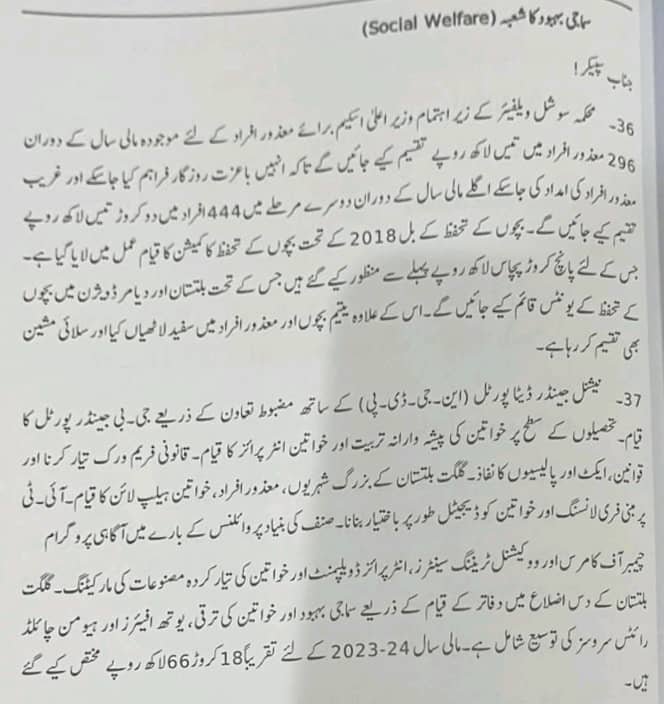The recent passage of the budget by the Gilgit-Baltistan Assembly once again highlights a concerning pattern regarding the treatment of disabled individuals in the region. While the Chief Minister’s Package for disabled persons serves as a short-term measure, it is insufficient to address the long-term needs of this marginalized community. This article aims to shed light on the lack of comprehensive solutions for empowering disabled individuals in Gilgit-Baltistan and calls for a shift toward prioritizing their education, employment, and overall dignity.
Neglecting Comprehensive Empowerment:
The primary concern lies in the government’s apparent oversight of the vital aspects required for the empowerment of disabled individuals. While the Chief Minister’s Package may provide some immediate relief, it fails to address the core issues hindering their progress. Education and skills development are critical components that can foster self-reliance and inclusivity. Unfortunately, the current budget and plans put forth by the assembly lack any concrete steps toward enhancing educational opportunities or skill-building programs for disabled individuals.
The Right to Dignity:
Every individual, regardless of their abilities, deserves to live a life of dignity and respect. By focusing predominantly on charitable packages, the government risks perpetuating the perception that disabled individuals are reliant on handouts and are mere recipients of sympathy. This approach undermines their agency and perpetuates social stigmatization. Disabled individuals have the right to be active contributors to society, and it is the government’s responsibility to provide them with equal opportunities and support to lead meaningful lives.
Employment Opportunities:
One of the key factors in empowering disabled individuals is ensuring their access to employment opportunities. Gainful employment not only provides financial independence but also contributes to their overall well-being and self-esteem. Unfortunately, the current budgetary measures fall short in addressing this critical aspect. The government should proactively collaborate with private sector entities and NGOs to promote inclusive hiring practices and establish vocational training programs tailored to the needs of disabled individuals. By doing so, they can pave the way for their integration into the workforce and reduce dependence on charity.
Education as the Foundation:
Education plays a pivotal role in enabling disabled individuals to reach their full potential. It is disheartening to note that the current budgetary allocation does not prioritize inclusive education initiatives or provide necessary resources for the establishment of special education institutions. By neglecting the education of disabled individuals, the government perpetuates a cycle of limited opportunities and denies them the chance to acquire the skills needed to lead independent lives. It is imperative that the government invests in accessible educational infrastructure, inclusive curricula, and qualified educators to ensure equal educational opportunities for all.
Conclusion:
The Gilgit-Baltistan government must recognize the urgency of providing long-term solutions for the empowerment of disabled individuals. Mere reliance on short-term packages and charity is inadequate and perpetuates dependency rather than fostering independence and dignity. Education and employment opportunities should be at the forefront of the government’s agenda, with a comprehensive plan that addresses the specific needs of disabled individuals. It is time for the government to prioritize their rights, invest in their future, and create an inclusive society where disabled individuals can flourish and contribute to the progress of Gilgit-Baltistan. Only through these concerted efforts can we truly empower disabled individuals and ensure their right to live with dignity.



